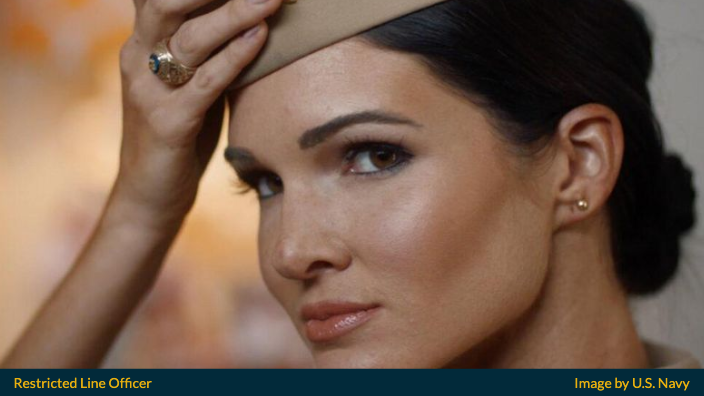This guide provides useful information about becoming a Restricted Line Officer in the Navy during Fiscal Year 2025.
As you will see, there are many officer programs in the Restricted Line.
Let us start with the descriptions.
What is a Restricted Line Officer in the Navy?
Navy Restricted Line (RL) Officers have specialized warfighting roles but don’t handle direct combat strategy or tactics.
They’re essential to the Navy’s strength, supporting Unrestricted Line (URL) Officers with top-tier expertise. Their role is critical, but it comes with limits.
RL Officers can’t command warships, submarines, or aviation squadrons. They also can’t lead shore-based units like naval bases or air stations. Reaching Flag Officer ranks? Not an option.
That doesn’t mean their careers stall. RL Officers often move into high-level roles in their specialized fields, shaping the Navy in big ways.

Navy Restricted Line Officer Jobs
In the Navy, there are several Restricted Line Officer designators that specialize in a wide variety of highly technical skills, which include:
- Aviation Maintenance Duty Officer (AMDO)
- Engineering Duty Officer (EDO)
- Naval Reactors Engineer (Nuclear)
- Nuclear Instructor
- Public Affairs Officer (PAO)
- Information Warfare Community (IWC)
Also Read: United States Navy and Marine Corps Officer Rank Structure
How To Become A Restricted Line Officer
Becoming a Navy Restricted Line Officer is no easy path. The competition is tough, and commissions are limited.
Start early—apply at least a year before finishing college. Spots fill fast, and meeting the basic commission requirements is just the first step.
This isn’t a typical management job. RL Officers play a direct role in national security, and the expectations are higher than anything your civilian peers will face.
If that doesn’t faze you, you’re probably the right kind of person for the job.
This is just the starting point. More requirements will come up as you move through the process.
For a personalized assessment, talk to a Navy Officer recruiter.
Basic Eligibility Requirements
Different jobs will have their own unique requirements, but these are the common ones for all Navy Restricted Line Officers:
1) Citizenship
You must be a United States citizen either by birth or naturalization.
2) Education
You must have at least a baccalaureate degree from a regionally accredited college or university. GPA requirement and degree major requirements differ in each RL officer job.
3) Physical
You must pass a physical and medical screening, typically conducted during the application process.
4) Aptitude
Navy Restricted Line Officer applicants must pass the Officer Aptitude Rating (OAR).
The most crucial requirement that you can fully control is your OAR score. It is the primary objective criteria upon which all applicants are compared against.
To maximize your chances of obtaining an exceptional OAR score, we only recommend this OAR Study Guide for your success. All others are mediocre at best.
Officer Candidate School (OCS)
All prospective Restricted Line Officers spend around 13 weeks in Newport, Rhode Island, attending Navy orientation training at the Officer Candidate School (OCS).
Navy OCS expands your professional understanding of the Navy and assists you in making the transition from civilian to military life.
You will find that academic classes, military training, and physical fitness training are all challenging and rigorous at OCS. You will need to be self-disciplined, physically fit, and have solid study habits since you will be working hard.
The course dives into stuff like Naval operations, orientation, and administration. You’ll also study naval history and how the Navy uses strategic deterrence, sea control, and force projection to dominate the seas during wars. Plus, you’ll learn how the Navy helps keep the seas free and open during times of peace.
Also Read: Navy OCS Guide for Officer Applicants
More Information
If you want more information about becoming a Navy Restricted Line Officer, the next logical step is to contact a Naval Officer Recruiter.
Let us start figuring out how you can benefit from the Navy – or if it is even a right fit for you.
You may also find more detailed information in this Quick Guide: How To Become a Naval Officer where you will find the actual step-by-step instructions toward this journey.

